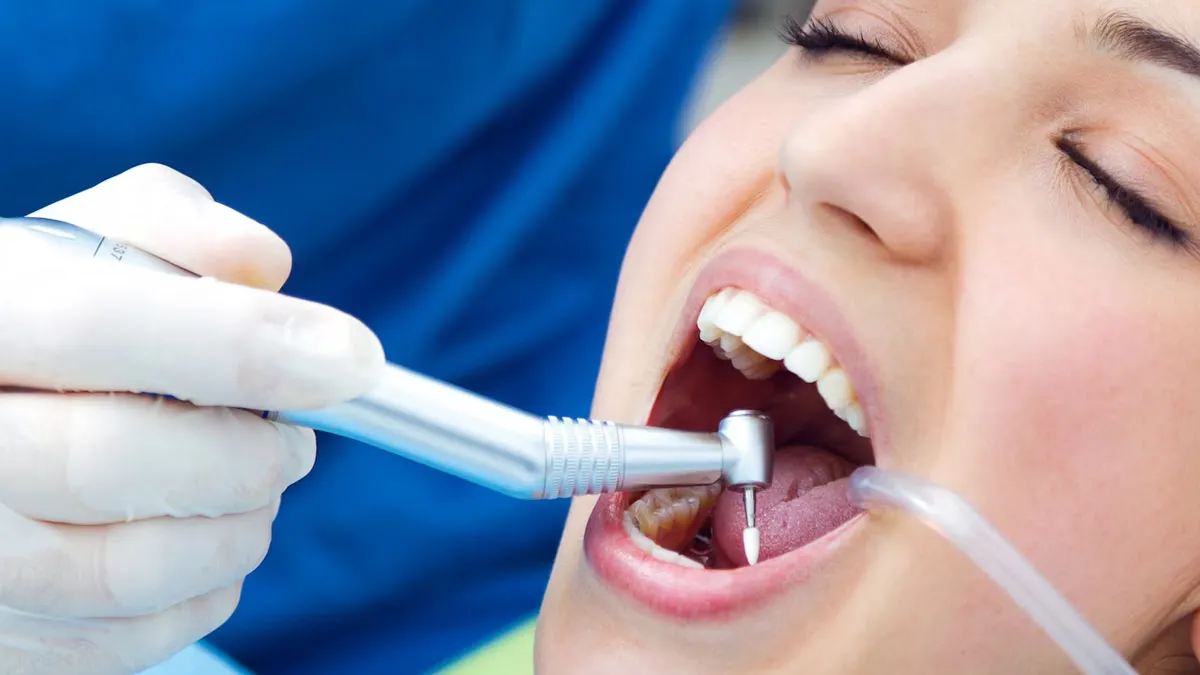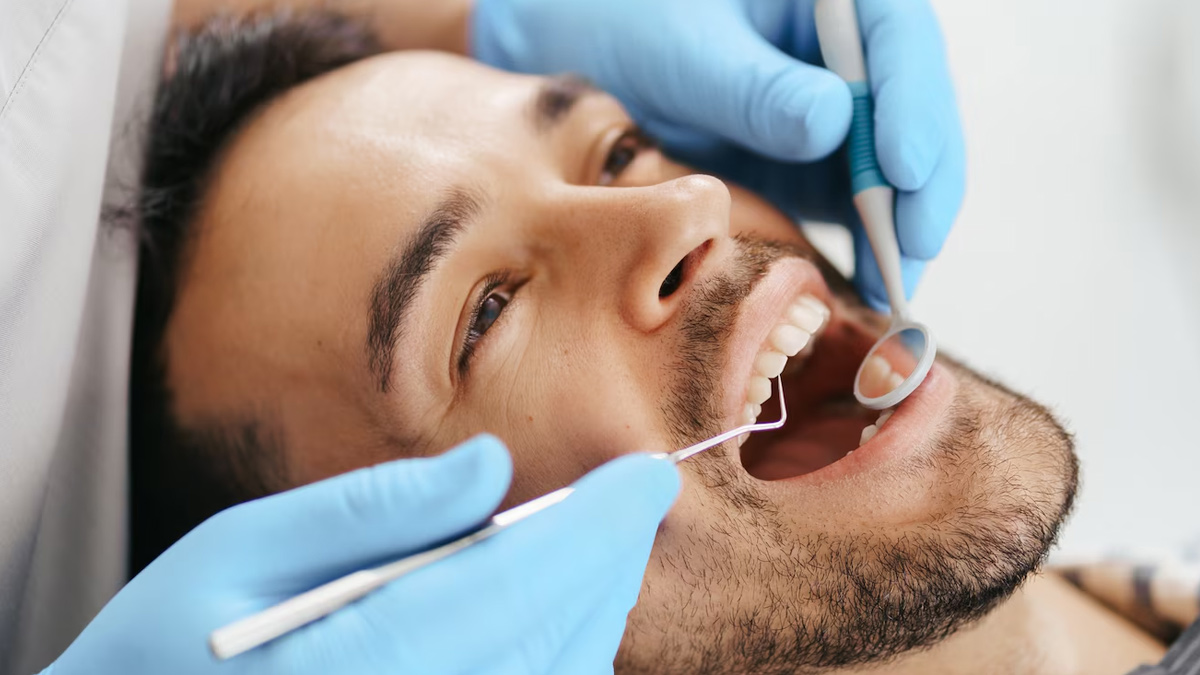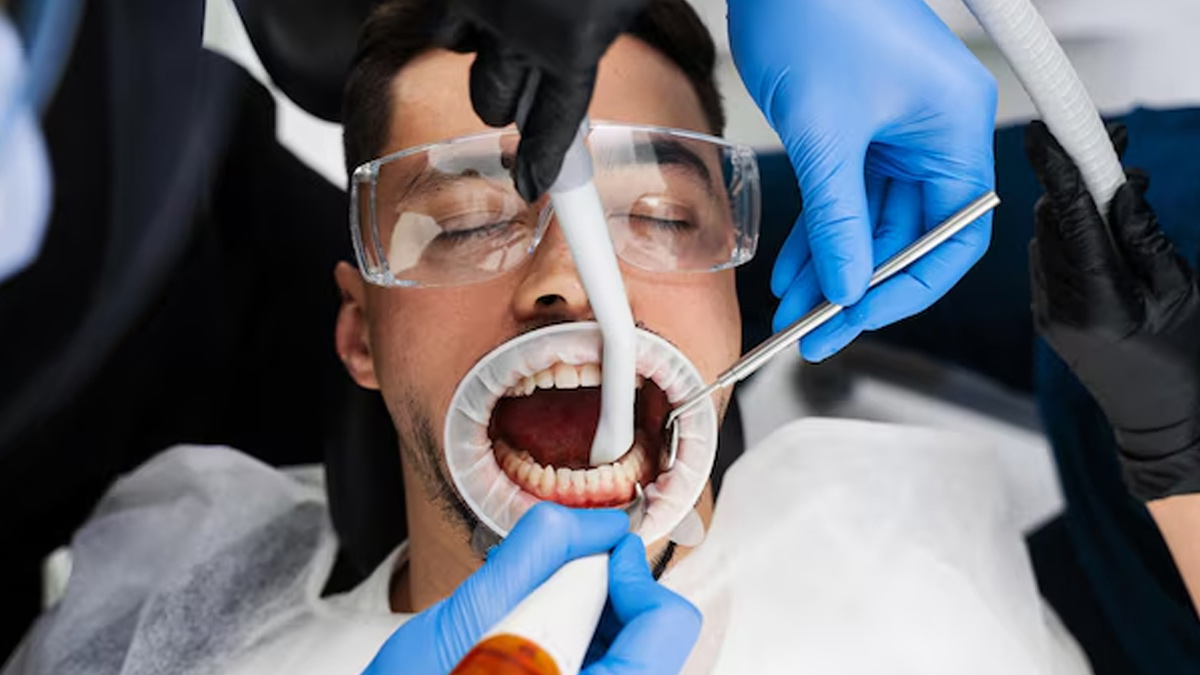
When it comes to oral health, brushing and regular flossing do cover the basics. But when it comes to tackling more serious issues, dental procedures must be considered. You’ve probably been to the dentist for a filling, an extraction, or routine cleaning. However, in some cases, especially when your teeth and gums have been significantly affected, a dentist may recommend a deep dental cleaning. But what exactly does that involve, and how is it different from your regular teeth cleaning?
Table of Content:-
Speaking with the OnlyMyHealth team, Dr Manvi Srivastava, Dentist at NIIMS Medical College & Hospital, Noida, explains the procedure and shares its benefits—and no, it doesn't consist of whitening your teeth.
Also Read: Does Tooth Scaling Damage Your Teeth? Debunking Common Myths and Facts
How Is Deep Dental Cleaning Different From Regular Cleaning?

“Deep dental cleaning, also known as scaling and root planing, is a type of non-surgical periodontal therapy designed to manage periodontal disease by removing subgingival calculus, also called tartar, and bacterial biofilm just below the gingival margin,” explains Dr Srivastava.
According to her, patients with gingivitis that has progressed to periodontitis, especially those with probing depths of 4 mm or more, bleeding during probing, visible bone loss on X-rays, or loose teeth, should consider getting a deep dental cleaning. “This will vary depending on the periodontal status of the person but is usually a one-time cleaning followed by a periodontal maintenance program every 3–4 months, depending on risk and their response to treatment.”
Deep dental cleaning differs from prophylactic, or regular, cleaning, as it is performed for therapeutic purposes instead of simply maintaining health for patients without active periodontal disease.
Benefits Of Deep Dental Cleaning

The main purpose of deep dental cleaning involves periodontal health, also known as gum health. However, it also may provide a secondary cosmetic value, removing extrinsic stains and calculus deposits, resulting in a cleaner-looking tooth surface.
But note that even with making the teeth look cleaner, it does not fulfil the function of a tooth whitening procedure in the aesthetic sense, such as hydrogen peroxide or carbamide peroxide bleaching agents being used, clarifies Dr Srivastava.
The good news is that scaling and root planing (deep dental cleaning) reduces the bacterial load that initiates and sustains chronic inflammation. “Chronic inflammation, if not treated, destroys periodontal ligament fibres, causes resorption of alveolar bone, and results in tooth exfoliation. Deep cleaning at the early stages of periodontal disease can halt disease progression, stabilise attachment levels, and greatly reduce the risk of tooth loss,” he shares further.
Also Read: Healthy Teeth, Healthy Smile: Home Remedies To Get Rid Of Tartar From Teeth
What Should One Expect During Deep Dental Cleaning?

Dr Srivastava explains that deep cleaning is usually done under local anaesthesia to keep the patient comfortable. Dentists use tools like ultrasonic scalers and hand-held instruments to clean the roots of the teeth. After the procedure, patients might feel mild discomfort, gum tenderness, temporary sensitivity, or slight gum recession. To support healing, antimicrobial mouth rinses or antibiotics may be prescribed.
Recovery is monitored over the next few weeks, and patients are generally advised to follow a regular periodontal maintenance schedule.
Also watch this video
How we keep this article up to date:
We work with experts and keep a close eye on the latest in health and wellness. Whenever there is a new research or helpful information, we update our articles with accurate and useful advice.
Current Version